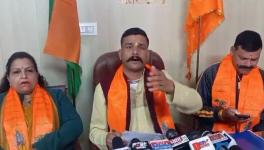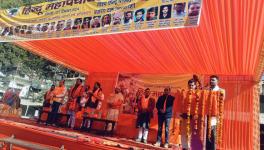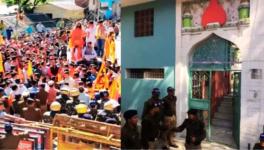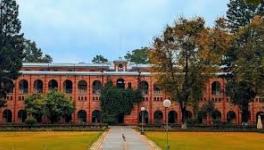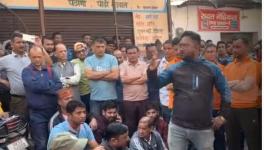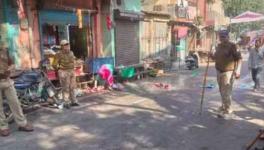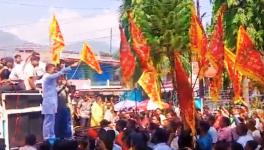Uttarakhand HC Raps Government over Incompetent Committee for Examining Van Gujjar Rights
The Uttarakhand High Court came down heavily on the state government for constituting a committee that was not competent to examine the issues and rights of Van Gujjar community. The bench of Chief Justice Raghvendra Singh Chauhan and Justice Alok Kumar Verma, vide order dated March 17, said that it did not appreciate the lacunae left by the government while constituting the Committee and neither did it appreciate the Committee forcing the petitioner to go before another competent authority to raise its grievances.
The court thus directed the government to re-constitute the committee with competent members and gave specific directions to the committee thus formed to submit its recommendations within 3 months.
Background
The court highlighted that vide order dated September 3, 2019, a coordinate bench of the court had discussed the scope and ambit of Section 61-A of the Indian Forest Act ad had directed that “the Van Gujjars, living within the Shyampur Range of Haridwar Division of Rajaji National Park, shall not be evicted except in strict compliance of the provisions of Section 61-A of the Indian Forest Act, 1927”.
At a previous hearing, on August 17, 2020, the court had directed the state government to constitute a Committee which would consider the problems of the Van Gujjars, necessary steps that are required to be taken for their rehabilitation and upliftment, as well as the rights which can be given to the Van Gujjars under the Indian Forest Act. Accordingly, the committee was constituted comprising
(i) the Chief Forest Conservator, Wildlife as the Chairman of the Committee,
(ii) Chief Wildlife Conservator as member,
(iii) Director, Rajaji Tiger Reserve to be the Member Secretary as also
(iv) a representative nominated by the Director, Wildlife Institute of India, and
(v) a representative nominated by the WWF, World Wide Fund for Nature as members.
The issues considered by the committee included:
1. whether the legal proceedings being initiated against the Van Gujjars, such as removal of encroachment etc, can be stopped?
2. whether the FIRs, which have been registered against the Van Gujjars, can be withdrawn/recalled, if the same have not been registered following the due process of law?
3. to initiate proceedings to provide them legal rights under the Forest Rights Act, 2006.
4. to give them compensation, by following the legal procedure, for the rehabilitation done in the past.
5. the conversion of that part of the forest land into a revenue village where this population of Van Gujjars is residing.
6. to inquire into the steps taken by the officers against the Van Gujjars.
The petitioner, Arjun Kasana, termed the committee to be an eye wash as it failed to delve into the areas which were supposed to be examined, and to submit its recommendations. Further, with regard to the rights of Van Gujjars, the Committee asked the petitioner to raise its grievances before the District Magistrate, and before the Social Welfare Department, vide a letter dated February 15, 2021. The petitioner argued that the court did not expect the committee to merely pass the buck and compel the petitioner to run from pillar to post in order to highlight the plight of the Van Gujjars.
The court’s observations
The court observed that the tribal population in the state is large and they continue to live in forests in the harshest conditions. The court opined that it is the constitutional duty of the State to look after the tribal population and it cannot turn a Nelson’s eye towards them. The court further stated that the tribal population has as much Fundamental Rights, under Part-III of the Constitution of India, as the urban and rural population and they cannot be denied the same due to the state’s apathy and callous attitude.
The court observed that the State is duty bound to:
(a) take steps for the benefit of the tribal population
(b) to ensure that Fundamental Rights are concretised for the benefit of the tribal population
(c) to ensure that basic fundamental facilities are provided to the tribal population
(d) in light of the Directive Principles of the Constitution of India to improve the lifestyle and the condition of the tribal population, and
(e) to ensure that the tribal population improves its living standard to the extent it merges with the mainstream of the society, and becomes a part of the productive population of the State.
The court expressed its displeasure over the functioning of the committee which was given a particular mandate by the court which was to look into and examine the difficulties faced by Van Gujjars and to resolve the same by making recommendations. The further stated that the constitution of the committee was not up to the mark, “It was certainly not expected by this Court that the Committee, so constituted, would not even have the competent persons, and competent authorities within its constitution. Moreover, it was certainly not expected that the Committee would pass the buck, and would force the petitioner to run from pillar to post in order to highlight the problems of the Van Gujjars.”
The court’s directions
The court then came down on the government for not including in the committee concerned District Magistrate(s) and the Principal Secretary, Social Welfare Department as members since the task was related to the community’s rights under the Forest Rights Act. The court, thus directed the government to re-constitute the committee and to ensure that competent authorities are included as members, otherwise it would just be a mirage and an eye wash. The court further directed that the District Magistrate of the concerned districts, the Principal Secretary, Social Welfare Department, and the Secretary, DLSA of the concerned districts to be included in the committee.
The court then gave specific directions to the committee:
·call the petitioner organisation and shall seek their views on the six points that the Committee has to examine.
·meet once every month to deliberate on the six points explicitly mentioned in the order dated October 1, 2020
·give its report to the State Government with regard to these six points within a period of three months.
·A copy of the recommendations, and the report of the Committee shall also be filed before this Court for its perusal.
Further, in order to ensure that the Committee is functioning as per the present order, the court directed the registry to list the case every month and assigned dates for the same: April 28, May 19 and June 9.
Courtesy: sabrang
The complete order may be read here:
Get the latest reports & analysis with people's perspective on Protests, movements & deep analytical videos, discussions of the current affairs in your Telegram app. Subscribe to NewsClick's Telegram channel & get Real-Time updates on stories, as they get published on our website.









